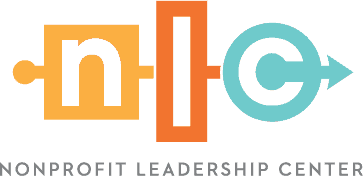At the Nonprofit Leadership Center, we’re on a mission to develop and connect nonprofit leaders to strengthen organizations and our communities. However, recent research from the Florida Nonprofit Alliance and National Council of Nonprofits shows that our sector is experiencing a workforce shortage crisis. Ongoing conversations with leaders who participate in our programming validate these findings.
While it may be natural to assume this workforce crisis is primarily due to lean nonprofit bottom lines, solving this problem requires a multi-faceted approach. The good news is there are steps we can take to begin addressing these labor challenges.
Consider four innovative strategies that your nonprofit can begin to explore.
4 Ways to Approach the Nonprofit Workforce Crisis
1. Compensation-Related Strategies
- Regularly review compensation structures to ensure they are competitive within the nonprofit sector. Benchmark against similar organizations, and consider factors like location, job role and experience level.
- In addition to salary, emphasize the value of benefits, such as health care, retirement plans, flexible work arrangements, employee wellness plans, and professional development opportunities. These can often be attractive perks for employees, especially in lieu of higher salaries.
- Consider creative approaches to compensation, such as performance-based bonuses or employee incentive models. These can align employee compensation incentives with organizational goals and promote a sense of ownership and commitment.
2. Culture-Related Strategies
- Create a supportive work environment where employees feel valued, respected, engaged, and have opportunities for growth. Offer training programs, mentorship initiatives, and career advancement paths to demonstrate commitment to employee development.
- Foster a positive and inclusive workplace culture where employees feel connected to the organization’s mission. Recognize and reward employee contributions, promote transparency, and encourage open communication.
- Be open with employees about financial challenges and the organization’s efforts to address them. Solicit feedback from staff on compensation and retention issues and involve them in decision-making processes where possible.
3. Operational-Related Strategies
- Streamline administrative processes and invest in technological solutions to improve operational efficiency and reduce nonessential operating costs. Redirect innovative cost savings toward employee compensation and benefits.
- Reduce reliance on a single funding stream by diversifying revenue sources. Explore opportunities for earned income, corporate partnerships, individual donors, and grants from a variety of sources to stabilize funding and support competitive compensation.
4. Social Sector-Related Strategies
- Work collaboratively with other nonprofit organizations to advocate for policy changes that support fair compensation and address systemic issues contributing to labor challenges, such as funding constraints and regulatory burdens.
- Partner with other nonprofits, government agencies, educational institutions, and private sector organizations to share resources, best practices, and innovative solutions for addressing labor challenges in the sector.
Here at the Nonprofit Leadership Center, we’re committed to supporting nonprofit talent by providing professional development, coaching and custom solutions to increase retention, loyalty and community impact.
Recognize Talent & Build Nonprofit Capacity
The Nonprofit Leadership Center offers many opportunities to invest in yourself or in your team. Explore our upcoming training classes and certificate programs that help nonprofit professionals at all levels of expertise and experiences grow their skillset, knowledge and confidence.


